Advanced semiconductors are some of the most complex objects humans can make. They are integral to European and global economies’ digital transformation and are increasingly strategically crucial from a geopolitical and technological sovereignty standpoint. However, the supply of these chips has for a long time lacked elasticity – gluts and shortages of supply are not uncommon, with the pandemic significantly compounding supply issues, leading some vital European industries reliant on semiconductors to have shuttered their manufacturing because of a lack of components. The costs and loss of business have run into the billions, and the European Union’s green and digital transition is at risk of delay.
The European Commission has released its primary response to this crisis through the European Chips Act, aiming to double the European share of global microchip production by 2030 and reduce supply dependencies.
These are delicate times, however. Semiconductors have become political and are also raising important questions around trade, state aid, competition rules, and global partnerships, and are an important test case for Europe’s ability to coordinate and react quickly to the drive for greater strategic autonomy.
This Forum Europe conference will analyse Europe’s plans to deepen its technological autonomy, particularly as it relates to semiconductors. The conference will look at how Europe can address supply shortages in the short to medium-term, while preparing the ground for Europe to lead in the next generation of advanced semi-conductors.

 Robert Troy, Minister of State for Trade Promotion, Digital and Company Regulation, Republic of Ireland
Robert Troy, Minister of State for Trade Promotion, Digital and Company Regulation, Republic of Ireland Robert Troy TD is the Minister of State with responsibility for Trade Promotion, Digital, & Company Regulation at the Department of Enterprise, Trade and Employment. He was appointed to this role in July 2020.
He is the Fianna Fáil TD for Longford/Westmeath, elected to Dáil Éireann on his first attempt in the February 2011 general election and has been re-elected in both the 2016 & 2020 general elections.
Before entering the Dáil he served for seven years as an elected member of Westmeath County Council.
He has been a Frontbench party Spokesperson since his election to Dáil Éireann. His various briefs have covered Arts & Heritage, Children & Youth Affairs, Transport, Tourism & Sport and most recently Business, Enterprise & Innovation. He has served on the Oireachtas Committee on Business, Enterprise and Innovation. He was also a member of the Oireachtas Committee on Transport, Tourism and Sport. For the past three years he has also been a member of the Council of Europe and during this time has spoken in this forum on a range of social issues.
Minister of State for Trade Promotion, Digital and Company Regulation
Republic of Ireland

 Lucilla Sioli, Director for Artificial Intelligence and Digital Industry, DG Connect, European Commission
Lucilla Sioli, Director for Artificial Intelligence and Digital Industry, DG Connect, European Commission Director for Artificial Intelligence and Digital Industry, DG Connect,
European Commission
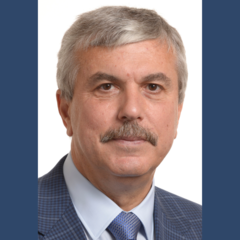
 Dan Nica MEP, Rapporteur for the EU Chips Act, ITRE Committee, European Parliament
Dan Nica MEP, Rapporteur for the EU Chips Act, ITRE Committee, European Parliament Rapporteur for the EU Chips Act, ITRE Committee
European Parliament

 Peter Dröll, Director for Prosperity, DG Research and Innovation, European Commission
Peter Dröll, Director for Prosperity, DG Research and Innovation, European Commission Peter has been working in the European Commission for more than 20 years with positions in environment, enlargement negotiations, industry policy, innovation and research. He was a Cabinet member of Enlargement Commissioner Günter Verheugen and Head of Cabinet of the Science and Research Commissioner Janez Potočnik.
Since 2010 he is at Directorate-General Research and Innovation where he was first responsible for Innovation then for Industrial Technologies. Following the re-orientation of DG Research and Innovation towards sustainability, his competences have been enlarged to include industrial R&I agendas and business intelligence as well as knowledge valorisation policies.
Before joining the European Commission in 1991, Peter worked as a lawyer in a German law firm. Peter is a lawyer by training with a doctorate degree in German constitutional law and European law.
Director for Prosperity, DG Research and Innovation
European Commission

 Lars Reger, Chief Technology Officer and EVP NXP Netherlands
Lars Reger, Chief Technology Officer and EVP NXP Netherlands Lars Reger is executive vice president and chief technology officer of NXP Semiconductors. As CTO, Lars is responsible for managing new business activities and R&D in the focus markets of automotive, industry 4.0., internet of things (IoT), mobile, and connectivity &
infrastructure.
Before joining NXP, Lars gained deep insight into the microelectronics industry with a focus on the automotive sector. He began his career with Siemens Semiconductors as product engineer in 1997. His past roles at Infineon included head of the process and product engineering departments, project manager for mobile system chips, and director of IP management. Prior to joining NXP as head of automotive strategy in 2008, he was responsible for business development and product management
within the connectivity business unit at Continental. In December 2018, Lars was appointed CTO and has since then been responsible for the overall technology portfolio of NXP. Since April 2019, he has been a board member of the committee for digital economy, telecommunications and media in the German Industry Association. Lars is also on the board of directors of ITS World Congress and a member of the Forbes Technology Council. Lars earned a degree in physics from Rheinische
Friedrich-Wilhelms-Universität in Bonn and an MBA from London Business School.
Chief Technology Officer and EVP
NXP Netherlands

 Eva Kaili MEP, Vice President of the European Parliament and Member of ITRE Committee, European Parliament
Eva Kaili MEP, Vice President of the European Parliament and Member of ITRE Committee, European Parliament Eva Kaili is a Member of the European Parliament (MEP), part of the Hellenic S&D Delegation since 2014.
In January 2022, she was elected as Vice-President of the European Parliament for the second half of the 9th legislature. Her responsibilities include the Parliament’s ICT Innovation Strategy, Informatics & Telecommunications, European Strategy and Policy Analysis System, Corporate Social Responsibility, and replacing the President for multilateral bodies, including the UN and the WTO.
Eva is the first woman to chair the Panel for the Future of Science and Technology (STOA) and the Centre for Artificial Intelligence (C4AI). She is a Member of the Committees on Industry, Research and Energy (ITRE), Economic and Monetary Affairs (ECON), Budgets (BUDG), and the Special Committee on Artificial Intelligence in a Digital Age (AIDA).
Eva has worked intensively on promoting innovation as a driving force of the European Digital Single Market. She has been the draftsperson of legislation in the fields of blockchain technology, online platforms, big data, fintech, AI, cybersecurity, as well as EFSI2 and the InvestEU programme.
She is also a member of the delegation to the ACP-EU Joint Parliamentary Assembly (DACP), the delegation for relations with the Arab Peninsula (DARP), and the delegation for relations with the NATO Parliamentary Assembly (DNAT).
Prior to her election as MEP, she was a Member of the Greek Parliament (2007-2012). Before her political career, she worked as a journalist and newscaster.
Eva holds a Bachelor’s degree in Architecture and Civil Engineering, and a postgraduate degree in International and European Affairs.
Vice President of the European Parliament and Member of ITRE Committee
European Parliament
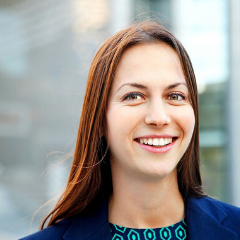
 Eva Maydell MEP, EPP lead MEP on Chips Act Package, European Parliament
Eva Maydell MEP, EPP lead MEP on Chips Act Package, European Parliament EPP lead MEP on Chips Act Package
European Parliament
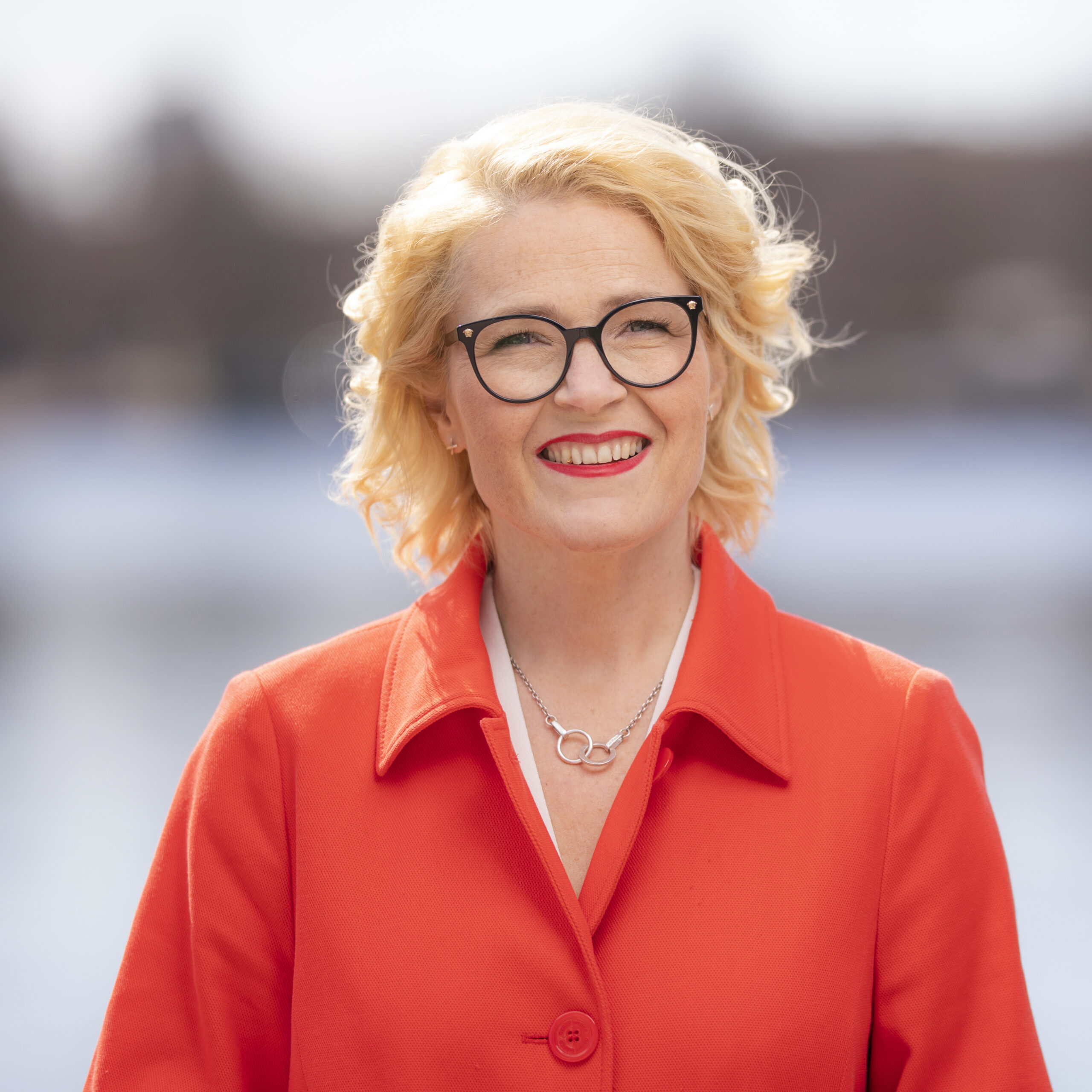
 Miapetra Kumpula-Natri MEP , Vice-Chair, EU-USA delegation, EU Parliament
Miapetra Kumpula-Natri MEP , Vice-Chair, EU-USA delegation, EU Parliament I am a Member of the European Parliament representing Finland and the S&D Group. I am eager to find sustainable solutions to climate change and Energy sector. I am looking for more investments in research, knowledge and fair working life through the European cooperation. Digitalization and teleoperation markets are close to my heart, and in the European Parliament I am also known as “Madame Roaming” and “Digi-MEP”.
I am a member of the Committee on Industry, Research and Energy (ITRE) and a substitute of the Committees on International Trade (INTA) and on Constitutional Affairs (AFCO). At the moment I am also the first vice-chair of the Special Committee on Artificial Intelligence in a Digital Age (AIDA). For 11 years, I was a member of the Finnish Parliament. Among other things, I was the chairperson of the Parliament’s Grand Committee, which focuses in the relationship between the EU and Finnish Parliament. I have been a member of the municipal council of Vaasa for 20 years.
Vice-Chair, EU-USA Delegation
EU Parliament

 Jo De Boeck, Executive Vice President and CSO, IMEC
Jo De Boeck, Executive Vice President and CSO, IMEC Executive Vice President and CSO
IMEC
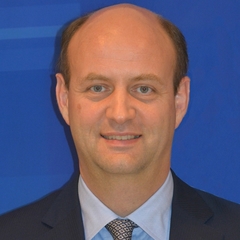
 Damien Levie, Head of Unit for Technology and Security - FDI Screening, DG TRADE, European Commission
Damien Levie, Head of Unit for Technology and Security - FDI Screening, DG TRADE, European Commission Head of Unit for Technology and Security - FDI Screening, DG TRADE, European Commission

 Colette Maloney, Head of Unit for Microelectronics and Photonics Industry, DG Connect, European Commission
Colette Maloney, Head of Unit for Microelectronics and Photonics Industry, DG Connect, European Commission CNECT A3 is responsible for development, coordination and implementation of research and industrial policy in semiconductor technologies. The unit has recently led the preparation of the proposal for a European Chips Act in collaboration with CNECT A2 who prepared the legal part of the proposal.
The unit oversees the Key Digital Technologies Joint Undertaking, the Photonics Public Private Partnership and Important Projects of Common European Interest (IPCEI) in the domain.
Colette has held a number of management positions in the Commission. Before joining the Commission she worked at Dartmouth College, USA and Ciba in Switzerland. She has a BSc in Physics and Mathematics (summa cum laude) and a PhD in Physics from Trinity College Dublin.
Head of Unit for Microelectronics and Photonics Industry, DG Connect, European Commission
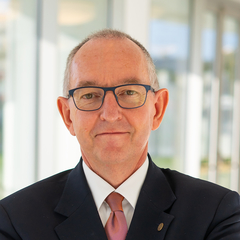
 Lars Montelius, Director–General, International Iberian Nanotechnology Laboratory
Lars Montelius, Director–General, International Iberian Nanotechnology Laboratory Director–General
International Iberian Nanotechnology Laboratory

 Hidehiko Ishii, First Secretary (Energy, Technology, Industry), Mission of Japan to the European Union.
Hidehiko Ishii, First Secretary (Energy, Technology, Industry), Mission of Japan to the European Union. WORKEXPERIENCE
Mission of Japan to the European Union
Jul 2021 – Present First Secretary (Energy, Technology, Industry)
Reconstruction Agency
Jun 2019 – Jul 2021 Secretary to the State Minister
Ministry of Economy, Trade and Industry
Jun 2016 – Jun 2019 Deputy director for international affairs, Agency for natural resources and energy
Jun 2012 – Jun 2014 Intellectual property secretariat
Jun 2010 – Jun 2012 Middle east and Africa division
Apr 2009 – Jun 2010 Trade Policy division
EDUCATION
2015.9 MSc Environmental Technology, Imperial College London
2014.9 MSc Development Management, London School of Economics
2009.3 Master of Engineering, The University of Tokyo Graduate School
First Secretary (Energy, Technology, Industry),
Mission of Japan to the European Union
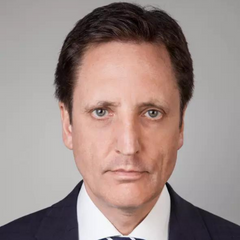
 Andreas Kopp, Senior Research Fellow and permanent member of the Investment Committee of the InvestEU Fund, CEPS
Andreas Kopp, Senior Research Fellow and permanent member of the Investment Committee of the InvestEU Fund, CEPS Andreas Kopp is a Senior Research Fellow at CEPS. He co-leads the GRID unit. He is also permanent member of the Investment Committee of the InvestEU Funnd and board member of the Supervisory Board of the EIT Urban Mobility (Barcelona).
Expert in public policy analysis and economic development. He has done public policy research for more than 20 years for the Kiel Institute for the World Economy, the OECD, the World Bank and the European Commission. He has a particular interest in better regulation, analysis of environmental and climate policies and their impact on economic growth, with more than 15 years of research experience. He has developed innovative methods to evaluate economic integration and agglomeration economies. He has worked with numerous national governments to public investment to increase economic growth.
Through his work for the Regulatory Scrutiny Board for 4 years he has earned in-depth knowledge on the functioning of EU institutions across all areas of EU policies. He was responsible for the quality control of impact assessments, fitness checks and evaluations of all Directorates General. He cooperated on ex ante and ex post policy control the research service of the European Parliament and the European Council. He is part of a network with national and sub-national entities in EU and non-EU countries.
He was co-author of World Development Reports on the impact of economic geography and climate change and economic development. He developed new instruments to include external costs into policy analysis and project evaluation at the World Bank. He developed the research basis for policy initiatives of the European Conference of Ministers of Transport at the OECD, serving the reduction of external costs and economic integration.
Andreas has extensive experience in data collection and analysis. He has done econometric work on the productivity effects of public investment, the trade and agglomeration effects of reduced trade costs. He has cooperated with the Joint Research Centre of the European Commission on how to increase quantification in impact assessments and evaluations. He masters using current software tools in econometrics, data analysis and machine learning.
Andreas was a Postdoc researcher at the Economics Department of the University of California at Berkeley. He did PhD studies in economics at the European University Institute (Florence) and the University of Giessen. He earned a PhD in economics, summa cum laude.
His native language is German. He is fluent in English and speaks French and Italian. He has some knowledge of Spanish.
Senior Research Fellow and permanent member of the Investment Committee of the InvestEU Fund
CEPS

 Jean-Luc di Paola-Galloni, Group Corporate Vice-President Sustainable Development and External Affairs, Valeo
Jean-Luc di Paola-Galloni, Group Corporate Vice-President Sustainable Development and External Affairs, Valeo In charge of Sustainable Development and External Affairs since 2010, Jean-Luc di Paola-Galloni joined Valeo in 2006 as CEO’s delegate, member of the executive committee.
Since January 2010, he is also the Valeo member to selection and investment committee of the Fonds Avenir Automobile (FAA), belonging to the French state owned Banque Publique d’Investissement (BPI).
Very active in the EU research and innovation related associations and organisation, Jean-Luc di Paola-Galloni is operational Vice-Chairman in the European Road Transport Research Advisory Council (ERTRAC), Vice-Chairman in EGVIAfor2Zero, the association engaged with the European Commission in the 2Zero partnership, Member of the Steering and Board of CLEPA, the European Association of Automotive Suppliers, President of Private (Beneficiary) Members Board in the EU Joint Undertaking ECSEL (Electronic Components and Systems) and president of INSIDE (European Intelligent and Embedded Systems Industry association).
His commitment to establish fair relationships between the automotive industry and international bodies, with a multi-stakeholder approach is also reflected by his commitment to advise the International Forum of OECD Transport Ministers from the beginning (2008) and to the Global Council of Automotive Industry of the World Economic Forum since its creation (2010).
He was previously advisor to the CEO of Gaz de France (2002-2004) and has a research experience in the field of defence, international relations and strategic affairs at Harvard University (Olin Institute, Weatherhead Center), Ecole Normale Supérieure and Institut des Hautes Etudes de Défense Nationale (French War College).
Group Corporate Vice-President Sustainable Development and External Affairs
Valeo

 Ilias Chantzos, Global Privacy Officer, Head of EMEA Government Affairs, Broadcom Inc
Ilias Chantzos, Global Privacy Officer, Head of EMEA Government Affairs, Broadcom Inc Ilias Chantzos is the Global Privacy Officer and the Head of Government Affairs programmes for Europe, Middle East & Africa (EMEA) of Broadcom. Chantzos leads the global privacy program of Broadcom across the company’s multiple business units and regions. He also represents Broadcom before government bodies, national authorities and international organisations in EMEA advising on public policy issues.
Before joining Broadcom Chantzos spent almost 16 years in various government affairs and legal roles in Symantec. During his last post with the Symantec he was in charge of the Government Affairs for the EMEA and the Asia Pacific Japan regions and the Global Advisor for Critical Infrastructure Protection and Privacy.
Before joining Symantec in 2004, Chantzos worked as legal and policy officer in the Directorate General Information Society of the European Commission focusing on information security policy. He covered the Council of Europe Cybercrime Convention and the Framework Decision on Attacks against Information Systems. In addition, he worked on a number of EU legislative initiatives relevant to information society and security, including directives on Privacy on Electronic Communications, the Data Retention Directive and the European Network and Information Security Agency (ENISA). He also represented the European Commission in various international debates and conferences.
Chantzos holds a law degree from the Aristotle University, a Master degree in Computers and Communication Law from Queen Mary College, University of London and a Master in Business Administration from Solvay Business School. He has also completed executive education at Lee Kuan Yew School of Public Policy in Singapore and at the JFK School of Government in Harvard. Chantzos is member of the Athens Bar Association. He served as Chairman of the Executive Board of TechAmerica Europe. He also served for four terms as Chairman of the European Policy Council of Business Software Alliance (BSA). He has represented Symantec at the NATO Industry Cooperation Platform and he has been a member of the Advisory Board of the European Network and Information Security Agency (ENISA) from 2006 until 2020. He is also a member of Europol’s European Cybercrime Center (EC3) Advisory Board. Chantzos is a member of the Young Global Leaders 2014 class of the World Economic Forum. He speaks English, Greek, Dutch and German.
Global Privacy Officer, Head of EMEA Government Affairs
Broadcom Inc
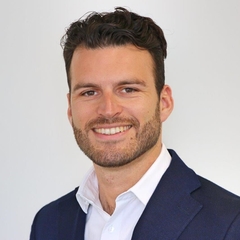
 Riccardo Masucci, Director of Security and Technology Policy at Intel Corporation
Riccardo Masucci, Director of Security and Technology Policy at Intel Corporation Director of Security and Technology Policy
Intel Corporation
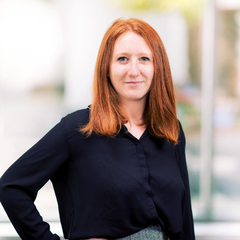
 Sarah Lenczner, Manager Government Affairs EMEA Qualcomm
Sarah Lenczner, Manager Government Affairs EMEA Qualcomm Manager Government Affairs EMEA
Qualcomm

 Will Parker, Director of Public Affairs, SEC Newgate EU
Will Parker, Director of Public Affairs, SEC Newgate EU Will Parker leads SEC Newgate EU’s public affairs and policy team, he has over 20 years of experience in EU and European Government relations. His previous experience includes leading Dell Technologies government affairs team in the EMEA region liaising on behalf of the company with the EU institutions and national governments around the region. In addition to leading the GA team in the EMEA region Will also worked on policies relating to cloud computing as well as working on data protection regulation. In addition to this work he supported the UK business with their high level engagement with government and has worked with Dell’s leadership in Ireland, the Nordics and France. Will was Chief Sherpa as Chair of the AmchamEU’s Executive Council. Prior to joining SEC Newgate Will worked on tech clients at another consultancy. Will studied Spanish and Politics at Manchester University. In his spare time Will is a keen cyclist, he is married with two children.
Director of Public Affairs
SEC Newgate EU

 Friederike Berfelde Associate Brunswick Group
Friederike Berfelde Associate Brunswick Group Friederike Berfelde is a member of Brunswick’s Global TMT Sector Group and specializes in EU public affairs and communications for clients in the industry. She also focusses on competition issues.
Associate
Brunswick Group

 Paul Adamson, Chairman, Forum Europe
Paul Adamson, Chairman, Forum Europe Paul Adamson is chairman of Forum Europe and Forum Global and founder of Encompass an online magazine and discussion space dedicated to covering the European Union and the UK’s place in the world. He is also the chairman of the EU-UK Forum and a member of the Independent Commission on UK-EU Relations..
Paul is a member of the Centre for European Reform’s advisory board and Rand Europe’s Council of Advisors. He is also a Visiting Professor at the Policy Institute, King’s College London, a Senior Adviser at the Atlantic Council’s Europe Center and a Senior Fellow at the Centre for Britain and Europe at the University of Surrey. He is a patron of the University Association of Contemporary European Studies (UACES) and a Fellow of the UK Academy of Social Sciences.
In 2012, Paul was made an Officer of the Order of the British Empire (OBE) “for services to promoting understanding of the European Union” and in 2016 he was made a Chevalier in the Ordre national du Mérite by the French government.
Chairman
Forum Europe

 Riccardo Masucci, Director of Security and Technology Policy at Intel Corporation
Riccardo Masucci, Director of Security and Technology Policy at Intel Corporation Director of Security and Technology Policy
Intel Corporation

 Sarah Lenczner, Manager Government Affairs EMEA Qualcomm
Sarah Lenczner, Manager Government Affairs EMEA Qualcomm Manager Government Affairs EMEA
Qualcomm

 Will Parker, Director of Public Affairs, SEC Newgate EU
Will Parker, Director of Public Affairs, SEC Newgate EU Will Parker leads SEC Newgate EU’s public affairs and policy team, he has over 20 years of experience in EU and European Government relations. His previous experience includes leading Dell Technologies government affairs team in the EMEA region liaising on behalf of the company with the EU institutions and national governments around the region. In addition to leading the GA team in the EMEA region Will also worked on policies relating to cloud computing as well as working on data protection regulation. In addition to this work he supported the UK business with their high level engagement with government and has worked with Dell’s leadership in Ireland, the Nordics and France. Will was Chief Sherpa as Chair of the AmchamEU’s Executive Council. Prior to joining SEC Newgate Will worked on tech clients at another consultancy. Will studied Spanish and Politics at Manchester University. In his spare time Will is a keen cyclist, he is married with two children.
Director of Public Affairs
SEC Newgate EU

To what extent will the European Chips Act be a template for the future of industrial policy in Europe?

What mix of options does Europe have to ensure a secure supply of semiconductor components in the future?

How could Europe, through R&D and FDI, boost homegrown production and supplies to its global customers?

What are the lessons learnt from Europe’s reaction to the global semiconductor shortage?
***All times listed are in local Brussels time (CEST)***

Robert Troy TD is the Minister of State with responsibility for Trade Promotion, Digital, & Company Regulation at the Department of Enterprise, Trade and Employment. He was appointed to this role in July 2020.
He is the Fianna Fáil TD for Longford/Westmeath, elected to Dáil Éireann on his first attempt in the February 2011 general election and has been re-elected in both the 2016 & 2020 general elections.
Before entering the Dáil he served for seven years as an elected member of Westmeath County Council.
He has been a Frontbench party Spokesperson since his election to Dáil Éireann. His various briefs have covered Arts & Heritage, Children & Youth Affairs, Transport, Tourism & Sport and most recently Business, Enterprise & Innovation. He has served on the Oireachtas Committee on Business, Enterprise and Innovation. He was also a member of the Oireachtas Committee on Transport, Tourism and Sport. For the past three years he has also been a member of the Council of Europe and during this time has spoken in this forum on a range of social issues.

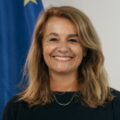
Ms Lucilla Sioli is the Director for “Artificial Intelligence and Digital Industry” within Directorate-General CONNECT at the European Commission. She is responsible for the coordination of the European digitisation of industry strategy and for policy development in the areas of artificial intelligence (AI) and semiconductors. The directorate also supports R&D&I in key digital industrial technologies including microelectronics, photonics, robotics, and AI. Lucilla holds a PhD in economics from the University of Southampton (UK) and one from the Catholic University of Milan (Italy) and has been a civil servant with the European Commission since 1997.



Paul Adamson is chairman of Forum Europe and Forum Global and founder of Encompass an online magazine and discussion space dedicated to covering the European Union and the UK’s place in the world. He is also the chairman of the EU-UK Forum and a member of the Independent Commission on UK-EU Relations..
Paul is a member of the Centre for European Reform’s advisory board and Rand Europe’s Council of Advisors. He is also a Visiting Professor at the Policy Institute, King’s College London, a Senior Adviser at the Atlantic Council’s Europe Center and a Senior Fellow at the Centre for Britain and Europe at the University of Surrey. He is a patron of the University Association of Contemporary European Studies (UACES) and a Fellow of the UK Academy of Social Sciences.
In 2012, Paul was made an Officer of the Order of the British Empire (OBE) “for services to promoting understanding of the European Union” and in 2016 he was made a Chevalier in the Ordre national du Mérite by the French government.

The European Chip Act aims to double Europe’s share of microchip production to 20% by 2030. In the face of significant ambitions from global partners and competitors, this session will analyse the tools available in Europe to build such capacity at pace.
How will the “Chips for Europe Initiative” manifest itself and how will finance be mobilised to boost production in Europe? How can coordination across the EU be improved, and in particular what impact can we expect from the new emergency toolbox? What is the current state of play for the Important Project of Common European Interest (IPCEI) on Microelectronics and Communications Technologies, which will play an integral role in enabling member states to move ahead with investments in semiconductor research and manufacturing? What role and structure can we expect for the Alliance on Processors and Semiconductor Technologies? With Europe having a strong research base and leadership positions in key areas for manufacturing within the semiconductor supply chain, how can these positions be maximized to enable greater autonomy?

CNECT A3 is responsible for development, coordination and implementation of research and industrial policy in semiconductor technologies. The unit has recently led the preparation of the proposal for a European Chips Act in collaboration with CNECT A2 who prepared the legal part of the proposal.
The unit oversees the Key Digital Technologies Joint Undertaking, the Photonics Public Private Partnership and Important Projects of Common European Interest (IPCEI) in the domain.
Colette has held a number of management positions in the Commission. Before joining the Commission she worked at Dartmouth College, USA and Ciba in Switzerland. She has a BSc in Physics and Mathematics (summa cum laude) and a PhD in Physics from Trinity College Dublin.


Eva Kaili is a Member of the European Parliament (MEP), part of the Hellenic S&D Delegation since 2014.
In January 2022, she was elected as Vice-President of the European Parliament for the second half of the 9th legislature. Her responsibilities include the Parliament’s ICT Innovation Strategy, Informatics & Telecommunications, European Strategy and Policy Analysis System, Corporate Social Responsibility, and replacing the President for multilateral bodies, including the UN and the WTO.
Eva is the first woman to chair the Panel for the Future of Science and Technology (STOA) and the Centre for Artificial Intelligence (C4AI). She is a Member of the Committees on Industry, Research and Energy (ITRE), Economic and Monetary Affairs (ECON), Budgets (BUDG), and the Special Committee on Artificial Intelligence in a Digital Age (AIDA).
Eva has worked intensively on promoting innovation as a driving force of the European Digital Single Market. She has been the draftsperson of legislation in the fields of blockchain technology, online platforms, big data, fintech, AI, cybersecurity, as well as EFSI2 and the InvestEU programme.
She is also a member of the delegation to the ACP-EU Joint Parliamentary Assembly (DACP), the delegation for relations with the Arab Peninsula (DARP), and the delegation for relations with the NATO Parliamentary Assembly (DNAT).
Prior to her election as MEP, she was a Member of the Greek Parliament (2007-2012). Before her political career, she worked as a journalist and newscaster.
Eva holds a Bachelor’s degree in Architecture and Civil Engineering, and a postgraduate degree in International and European Affairs.


Ilias Chantzos is the Global Privacy Officer and the Head of Government Affairs programmes for Europe, Middle East & Africa (EMEA) of Broadcom. Chantzos leads the global privacy program of Broadcom across the company’s multiple business units and regions. He also represents Broadcom before government bodies, national authorities and international organisations in EMEA advising on public policy issues.
Before joining Broadcom Chantzos spent almost 16 years in various government affairs and legal roles in Symantec. During his last post with the Symantec he was in charge of the Government Affairs for the EMEA and the Asia Pacific Japan regions and the Global Advisor for Critical Infrastructure Protection and Privacy.
Before joining Symantec in 2004, Chantzos worked as legal and policy officer in the Directorate General Information Society of the European Commission focusing on information security policy. He covered the Council of Europe Cybercrime Convention and the Framework Decision on Attacks against Information Systems. In addition, he worked on a number of EU legislative initiatives relevant to information society and security, including directives on Privacy on Electronic Communications, the Data Retention Directive and the European Network and Information Security Agency (ENISA). He also represented the European Commission in various international debates and conferences.
Chantzos holds a law degree from the Aristotle University, a Master degree in Computers and Communication Law from Queen Mary College, University of London and a Master in Business Administration from Solvay Business School. He has also completed executive education at Lee Kuan Yew School of Public Policy in Singapore and at the JFK School of Government in Harvard. Chantzos is member of the Athens Bar Association. He served as Chairman of the Executive Board of TechAmerica Europe. He also served for four terms as Chairman of the European Policy Council of Business Software Alliance (BSA). He has represented Symantec at the NATO Industry Cooperation Platform and he has been a member of the Advisory Board of the European Network and Information Security Agency (ENISA) from 2006 until 2020. He is also a member of Europol’s European Cybercrime Center (EC3) Advisory Board. Chantzos is a member of the Young Global Leaders 2014 class of the World Economic Forum. He speaks English, Greek, Dutch and German.


Lars Reger is executive vice president and chief technology officer of NXP Semiconductors. As CTO, Lars is responsible for managing new business activities and R&D in the focus markets of automotive, industry 4.0., internet of things (IoT), mobile, and connectivity &
infrastructure.
Before joining NXP, Lars gained deep insight into the microelectronics industry with a focus on the automotive sector. He began his career with Siemens Semiconductors as product engineer in 1997. His past roles at Infineon included head of the process and product engineering departments, project manager for mobile system chips, and director of IP management. Prior to joining NXP as head of automotive strategy in 2008, he was responsible for business development and product management within the connectivity business unit at Continental. In December 2018, Lars was appointed CTO and has since then been responsible for the overall technology portfolio of NXP. Since April 2019, he has been a board member of the committee for digital economy, telecommunications and media in the German Industry Association. Lars is also on the board of directors of ITS World Congress and a member of the Forbes Technology Council. Lars earned a degree in physics from Rheinische Friedrich-Wilhelms-Universität in Bonn and an MBA from London Business School.




Paul Adamson is chairman of Forum Europe and Forum Global and founder of Encompass an online magazine and discussion space dedicated to covering the European Union and the UK’s place in the world. He is also the chairman of the EU-UK Forum and a member of the Independent Commission on UK-EU Relations..
Paul is a member of the Centre for European Reform’s advisory board and Rand Europe’s Council of Advisors. He is also a Visiting Professor at the Policy Institute, King’s College London, a Senior Adviser at the Atlantic Council’s Europe Center and a Senior Fellow at the Centre for Britain and Europe at the University of Surrey. He is a patron of the University Association of Contemporary European Studies (UACES) and a Fellow of the UK Academy of Social Sciences.
In 2012, Paul was made an Officer of the Order of the British Empire (OBE) “for services to promoting understanding of the European Union” and in 2016 he was made a Chevalier in the Ordre national du Mérite by the French government.

Europe not only faces a shortage of components but it is also challenged by a growing talent and skills deficit that could scupper its attempts to boost its technological sovereignty. This session will drill down to Europe’s R&D and tech industry base, focussing on where it has significant leverage and leadership, and where improvements and support are necessary and possible. Speakers will also at look what is required in the short to medium term to both attract the necessary talent to deliver on the EU’s chip research and development goals, and where international, cross-stakeholder cooperation can help cement this talent in Europe.

Eva Maydell (Paunova) is a second-term Member of the European Parliament within the European People’s Party (EPP) Group, representing the Citizens for European Development of Bulgaria (GERB). She is a Member of the Committee on Industry, Research and Energy (ITRE) and Economic and Monetary Affairs (ECON) Committee. She is also a Vice-Chair of the Delegation for relations with Japan and substitute member in the Delegation for relations with the US. Until her election, she was Executive Coordinator of the GERB-EPP Delegation and Senior Policy Advisor in the European Parliament. MEP Maydell’s key interests include innovation & digitalisation, investments, SMEs & entrepreneurship and education.

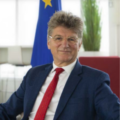
Peter has been working in the European Commission for more than 20 years with positions in environment, enlargement negotiations, industry policy, innovation and research. He was a Cabinet member of Enlargement Commissioner Günter Verheugen and Head of Cabinet of the Science and Research Commissioner Janez Potočnik.
Since 2010 he is at Directorate-General Research and Innovation where he was first responsible for Innovation then for Industrial Technologies. Following the re-orientation of DG Research and Innovation towards sustainability, his competences have been enlarged to include industrial R&I agendas and business intelligence as well as knowledge valorisation policies.
Before joining the European Commission in 1991, Peter worked as a lawyer in a German law firm. Peter is a lawyer by training with a doctorate degree in German constitutional law and European law.


Jo De Boeck received his engineering degree in 1986 and his PhD degree in 1991 from the University of Leuven. Since 1991 he is a staff member of imec (Leuven). He has been a NATO Science Fellow at Bellcore (USA, 1991-92) and AST-fellow in the Joint Research Center for Atom Technology (Japan, 1998). In his research career, he has been leading activities on integration of novel materials at device level and new functionalities at systems level. In 2003 he became Vice President at IMEC for the Microsystems division and in 2005 started Holst Centre (Eindhoven), an open innovation initiative by imec and TNO. He currently is Managing Director of imec’s activities in The Netherlands. From 2010 he headed imec’s Smart Systems and Energy Technology Business Unit. He is part-time professor at the Engineering department of the KU Leuven and held a visiting professorship at the TU Delft, Kavli Institute for Nanoscience (2003–2016). In 2011 he became Chief Technology Officer and in 2018 he was appointed Chief Strategy Officer. He is member of imec’s Executive Board. His passion and professional focus are on innovation. In his current role he manages the internal imec.invest portfolio looking at impactful new R&D tracks, heads the imec Venture and spin-off activities and supports the long term strategy through funded projects, investment in talent and strategic academic relationships.


Lars Montelius is the Director–General of the International Iberian Nanotechnology Laboratory since the 1st September 2014.
Professor in Nanotechnology at Lund University, Sweden, Lars Montelius is the founder of several Swedish companies working with nanotechnology.
Lars Montelius is also the President of the IUVSTA: The International Union for Vacuum Science, Technique and Applications www.iuvsta-us.org with more than 150 000 members from 32 countries, member of the EC Executive High Level Group (HLG) at DG NMPB, and board member and Working Group Chair of the two European Technology Platforms NANOFutures: The European initiative for sustainable development by
Nanotechnologies www.nanofutures.eu and EuMat: The European Technology Platform for Advanced Engineering Materials and Technologies: eumat.eu.
Between 2003 and 2009, Lars Montelius was Dean of the Physics Department, Science and Engineering Faculties at Lund University and between 2009 and 2011, he was director for Øresund University & Øresund Science Region, a cross-border cooperation between eleven universities and three regional authorities of two countries in the Øresund Region.
Lars Montelius was also Chair of the Swedish Technical Standardization Committee on Nanotechnology from 2007 to 2014.


In charge of Sustainable Development and External Affairs since 2010, Jean-Luc di Paola-Galloni joined Valeo in 2006 as CEO’s delegate, member of the executive committee.
Since January 2010, he is also the Valeo member to selection and investment committee of the Fonds Avenir Automobile (FAA), belonging to the French state owned Banque Publique d’Investissement (BPI).
Very active in the EU research and innovation related associations and organisation, Jean-Luc di Paola-Galloni is operational Vice-Chairman in the European Road Transport Research Advisory Council (ERTRAC), Vice-Chairman in EGVIAfor2Zero, the association engaged with the European Commission in the 2Zero partnership, Member of the Steering and Board of CLEPA, the European Association of Automotive Suppliers, President of Private (Beneficiary) Members Board in the EU Joint Undertaking ECSEL (Electronic Components and Systems) and president of INSIDE (European Intelligent and Embedded Systems Industry association).
His commitment to establish fair relationships between the automotive industry and international bodies, with a multi-stakeholder approach is also reflected by his commitment to advise the International Forum of OECD Transport Ministers from the beginning (2008) and to the Global Council of Automotive Industry of the World Economic Forum since its creation (2010).
He was previously advisor to the CEO of Gaz de France (2002-2004) and has a research experience in the field of defence, international relations and strategic affairs at Harvard University (Olin Institute, Weatherhead Center), Ecole Normale Supérieure and Institut des Hautes Etudes de Défense Nationale (French War College).


Friederike Berfelde is a member of Brunswick’s Global TMT Sector Group and specializes in EU public affairs and communications for clients in the industry. She also focuses on competition issues.

While Europe pushes to increase its global share of semiconductor production, it also recognises its future role will continue to be a part of a complex global supply chain. The trade in chips and the materials used to produce them are also subject to significant export controls, particularly as the global contest for chip leadership intensifies. With efforts to rebalance the global supply chain of chips underway, how will the EU’s proposals to, in a limited fashion, liberate member states from existing state rules, impact European and global markets? How will Europe’s proposals interact with policies in the US and China, for example? Is there a need for new forums for international cooperation on semiconductors beyond the newly formed EU-US Trade and Technology Council, designed to ensure that chip diplomacy and cooperation can develop with a view to the longer-term when perhaps international relations have improved?

Miapetra Kumpula-Natri is a MEP representing Finland and the S&D Group. Kumpula-Natri is the first vice-chair of the Artificial Intelligence in digital age (AIDA) special committee, member of the Committee on Industry, Research and Energy (ITRE) and a substitute of the Committees on International Trade (INTA) and on Constitutional Affairs (AFCO). For 11 years, Miapetra was a member of the Finnish Parliament.
Miapetra is eager to find sustainable solutions to climate change and Energy sector and she is looking for more investments in research, knowledge and fair working life through the European cooperation. Digitalization, data economy, artificial intelligence and teleoperation markets are close to her heart, and in the European Parliament she is also known as “Madame Roaming” and “Digi-MEP”. Among other responsibilities, she is at the moment the rapporteur for the European Parliament own initiative report on data strategy, ITRE shadow for the Data Governance act and standing rapporteur for the WTO e-commerce negotiations.


Sarah is Manager Government Affairs EMEA at Qualcomm. Her main activities focus on industrial policies in Europe. She joined Qualcomm in 2020 after working at the consultancy Burson Cohn & Wolfe and the Council of the European Union. She holds postgraduate degrees in European Affairs from Leiden University and the University of Geneva. Sarah is based out of Brussels with regular back-and-forth to Pa


Damien Levie currently heads the team “Technology & Security, FDI Screening” in the Directorate General for Trade in the European Commission.
The team manages the first EU-wide coordination mechanism among EU Member States in the field of screening of foreign direct investment. The Team also develops policies in areas at the intersection of international trade, high-tech and security with a view to contributing to the EU’s prosperity, strategic autonomy and security. These comprise EU dual-use export controls, including in the field of Russia / Belarus trade sanctions, and the EU framework for screening of foreign direct investment into the EU. The team acts as a DG TRADE focal point on high tech & trade-related matters in areas such as semiconductors, and large civilian aircraft. Damien heads the EU delegation in the “Government/Authorities Meetings on Semiconductors” which is a six-party forum for government/authorities in relation to semiconductors.
Damien previously headed the Trade Policy Evaluation and Transparency Teams.
He was a senior EU trade diplomat (Minister Counsellor) in Washington DC from 2014 to 2018, and helped manage the economic relations with the USA under Presidents Obama and Trump. From 2012 to 2014: he was the EU deputy-chief negotiator for the Transatlantic Trade and Investment Partnership between the EU and the USA.
Before working fulltime on EU-US trade, he was a senior adviser in the Cabinet of EU Trade Commissioner Karel De Gucht and a member of the Cabinet of Louis Michel, EU Commissioner for external relations with ACP countries and Development Policy.
Damien Levie has law degrees from KU Leuven and the University of Chicago Law School and an Economics degree from UC Louvain. He was a lawyer at a major US law firm in Brussels and New York from 1994 to 2001.


Andreas Kopp is a Senior Research Fellow at CEPS. He co-leads the GRID unit. He is also permanent member of the Investment Committee of the InvestEU Funnd and board member of the Supervisory Board of the EIT Urban Mobility (Barcelona).
Expert in public policy analysis and economic development. He has done public policy research for more than 20 years for the Kiel Institute for the World Economy, the OECD, the World Bank and the European Commission. He has a particular interest in better regulation, analysis of environmental and climate policies and their impact on economic growth, with more than 15 years of research experience. He has developed innovative methods to evaluate economic integration and agglomeration economies. He has worked with numerous national governments to public investment to increase economic growth.
Through his work for the Regulatory Scrutiny Board for 4 years he has earned in-depth knowledge on the functioning of EU institutions across all areas of EU policies. He was responsible for the quality control of impact assessments, fitness checks and evaluations of all Directorates General. He cooperated on ex ante and ex post policy control the research service of the European Parliament and the European Council. He is part of a network with national and sub-national entities in EU and non-EU countries.
He was co-author of World Development Reports on the impact of economic geography and climate change and economic development. He developed new instruments to include external costs into policy analysis and project evaluation at the World Bank. He developed the research basis for policy initiatives of the European Conference of Ministers of Transport at the OECD, serving the reduction of external costs and economic integration.
Andreas has extensive experience in data collection and analysis. He has done econometric work on the productivity effects of public investment, the trade and agglomeration effects of reduced trade costs. He has cooperated with the Joint Research Centre of the European Commission on how to increase quantification in impact assessments and evaluations. He masters using current software tools in econometrics, data analysis and machine learning.
Andreas was a Postdoc researcher at the Economics Department of the University of California at Berkeley. He did PhD studies in economics at the European University Institute (Florence) and the University of Giessen. He earned a PhD in economics, summa cum laude.
His native language is German. He is fluent in English and speaks French and Italian. He has some knowledge of Spanish.




Will Parker, Director Public Affairs
Will Parker leads SEC Newgate EU’s public affairs and policy team, he has over 20 years of experience in EU and European Government relations. His previous experience includes leading Dell Technologies government affairs team in the EMEA region liaising on behalf of the company with the EU institutions and national governments around the region. In addition to leading the GA team in the EMEA region Will also worked on policies relating to cloud computing as well as working on data protection regulation. In addition to this work he supported the UK business with their high level engagement with government and has worked with Dell’s leadership in Ireland, the Nordics and France. Will was Chief Sherpa as Chair of the AmchamEU’s Executive Council. Prior to joining SEC Newgate Will worked on tech clients at another consultancy. Will studied Spanish and Politics at Manchester University. In his spare time Will is a keen cyclist, he is married with two children.


Robert Troy TD is the Minister of State with responsibility for Trade Promotion, Digital, & Company Regulation at the Department of Enterprise, Trade and Employment. He was appointed to this role in July 2020.
He is the Fianna Fáil TD for Longford/Westmeath, elected to Dáil Éireann on his first attempt in the February 2011 general election and has been re-elected in both the 2016 & 2020 general elections.
Before entering the Dáil he served for seven years as an elected member of Westmeath County Council.
He has been a Frontbench party Spokesperson since his election to Dáil Éireann. His various briefs have covered Arts & Heritage, Children & Youth Affairs, Transport, Tourism & Sport and most recently Business, Enterprise & Innovation. He has served on the Oireachtas Committee on Business, Enterprise and Innovation. He was also a member of the Oireachtas Committee on Transport, Tourism and Sport. For the past three years he has also been a member of the Council of Europe and during this time has spoken in this forum on a range of social issues.


Ms Lucilla Sioli is the Director for “Artificial Intelligence and Digital Industry” within Directorate-General CONNECT at the European Commission. She is responsible for the coordination of the European digitisation of industry strategy and for policy development in the areas of artificial intelligence (AI) and semiconductors. The directorate also supports R&D&I in key digital industrial technologies including microelectronics, photonics, robotics, and AI. Lucilla holds a PhD in economics from the University of Southampton (UK) and one from the Catholic University of Milan (Italy) and has been a civil servant with the European Commission since 1997.



Paul Adamson is chairman of Forum Europe and Forum Global and founder of Encompass an online magazine and discussion space dedicated to covering the European Union and the UK’s place in the world. He is also the chairman of the EU-UK Forum and a member of the Independent Commission on UK-EU Relations..
Paul is a member of the Centre for European Reform’s advisory board and Rand Europe’s Council of Advisors. He is also a Visiting Professor at the Policy Institute, King’s College London, a Senior Adviser at the Atlantic Council’s Europe Center and a Senior Fellow at the Centre for Britain and Europe at the University of Surrey. He is a patron of the University Association of Contemporary European Studies (UACES) and a Fellow of the UK Academy of Social Sciences.
In 2012, Paul was made an Officer of the Order of the British Empire (OBE) “for services to promoting understanding of the European Union” and in 2016 he was made a Chevalier in the Ordre national du Mérite by the French government.

The European Chip Act aims to double Europe’s share of microchip production to 20% by 2030. In the face of significant ambitions from global partners and competitors, this session will analyse the tools available in Europe to build such capacity at pace.
How will the “Chips for Europe Initiative” manifest itself and how will finance be mobilised to boost production in Europe? How can coordination across the EU be improved, and in particular what impact can we expect from the new emergency toolbox? What is the current state of play for the Important Project of Common European Interest (IPCEI) on Microelectronics and Communications Technologies, which will play an integral role in enabling member states to move ahead with investments in semiconductor research and manufacturing? What role and structure can we expect for the Alliance on Processors and Semiconductor Technologies? With Europe having a strong research base and leadership positions in key areas for manufacturing within the semiconductor supply chain, how can these positions be maximized to enable greater autonomy?

CNECT A3 is responsible for development, coordination and implementation of research and industrial policy in semiconductor technologies. The unit has recently led the preparation of the proposal for a European Chips Act in collaboration with CNECT A2 who prepared the legal part of the proposal.
The unit oversees the Key Digital Technologies Joint Undertaking, the Photonics Public Private Partnership and Important Projects of Common European Interest (IPCEI) in the domain.
Colette has held a number of management positions in the Commission. Before joining the Commission she worked at Dartmouth College, USA and Ciba in Switzerland. She has a BSc in Physics and Mathematics (summa cum laude) and a PhD in Physics from Trinity College Dublin.


Eva Kaili is a Member of the European Parliament (MEP), part of the Hellenic S&D Delegation since 2014.
In January 2022, she was elected as Vice-President of the European Parliament for the second half of the 9th legislature. Her responsibilities include the Parliament’s ICT Innovation Strategy, Informatics & Telecommunications, European Strategy and Policy Analysis System, Corporate Social Responsibility, and replacing the President for multilateral bodies, including the UN and the WTO.
Eva is the first woman to chair the Panel for the Future of Science and Technology (STOA) and the Centre for Artificial Intelligence (C4AI). She is a Member of the Committees on Industry, Research and Energy (ITRE), Economic and Monetary Affairs (ECON), Budgets (BUDG), and the Special Committee on Artificial Intelligence in a Digital Age (AIDA).
Eva has worked intensively on promoting innovation as a driving force of the European Digital Single Market. She has been the draftsperson of legislation in the fields of blockchain technology, online platforms, big data, fintech, AI, cybersecurity, as well as EFSI2 and the InvestEU programme.
She is also a member of the delegation to the ACP-EU Joint Parliamentary Assembly (DACP), the delegation for relations with the Arab Peninsula (DARP), and the delegation for relations with the NATO Parliamentary Assembly (DNAT).
Prior to her election as MEP, she was a Member of the Greek Parliament (2007-2012). Before her political career, she worked as a journalist and newscaster.
Eva holds a Bachelor’s degree in Architecture and Civil Engineering, and a postgraduate degree in International and European Affairs.


Ilias Chantzos is the Global Privacy Officer and the Head of Government Affairs programmes for Europe, Middle East & Africa (EMEA) of Broadcom. Chantzos leads the global privacy program of Broadcom across the company’s multiple business units and regions. He also represents Broadcom before government bodies, national authorities and international organisations in EMEA advising on public policy issues.
Before joining Broadcom Chantzos spent almost 16 years in various government affairs and legal roles in Symantec. During his last post with the Symantec he was in charge of the Government Affairs for the EMEA and the Asia Pacific Japan regions and the Global Advisor for Critical Infrastructure Protection and Privacy.
Before joining Symantec in 2004, Chantzos worked as legal and policy officer in the Directorate General Information Society of the European Commission focusing on information security policy. He covered the Council of Europe Cybercrime Convention and the Framework Decision on Attacks against Information Systems. In addition, he worked on a number of EU legislative initiatives relevant to information society and security, including directives on Privacy on Electronic Communications, the Data Retention Directive and the European Network and Information Security Agency (ENISA). He also represented the European Commission in various international debates and conferences.
Chantzos holds a law degree from the Aristotle University, a Master degree in Computers and Communication Law from Queen Mary College, University of London and a Master in Business Administration from Solvay Business School. He has also completed executive education at Lee Kuan Yew School of Public Policy in Singapore and at the JFK School of Government in Harvard. Chantzos is member of the Athens Bar Association. He served as Chairman of the Executive Board of TechAmerica Europe. He also served for four terms as Chairman of the European Policy Council of Business Software Alliance (BSA). He has represented Symantec at the NATO Industry Cooperation Platform and he has been a member of the Advisory Board of the European Network and Information Security Agency (ENISA) from 2006 until 2020. He is also a member of Europol’s European Cybercrime Center (EC3) Advisory Board. Chantzos is a member of the Young Global Leaders 2014 class of the World Economic Forum. He speaks English, Greek, Dutch and German.


Lars Reger is executive vice president and chief technology officer of NXP Semiconductors. As CTO, Lars is responsible for managing new business activities and R&D in the focus markets of automotive, industry 4.0., internet of things (IoT), mobile, and connectivity &
infrastructure.
Before joining NXP, Lars gained deep insight into the microelectronics industry with a focus on the automotive sector. He began his career with Siemens Semiconductors as product engineer in 1997. His past roles at Infineon included head of the process and product engineering departments, project manager for mobile system chips, and director of IP management. Prior to joining NXP as head of automotive strategy in 2008, he was responsible for business development and product management within the connectivity business unit at Continental. In December 2018, Lars was appointed CTO and has since then been responsible for the overall technology portfolio of NXP. Since April 2019, he has been a board member of the committee for digital economy, telecommunications and media in the German Industry Association. Lars is also on the board of directors of ITS World Congress and a member of the Forbes Technology Council. Lars earned a degree in physics from Rheinische Friedrich-Wilhelms-Universität in Bonn and an MBA from London Business School.




Paul Adamson is chairman of Forum Europe and Forum Global and founder of Encompass an online magazine and discussion space dedicated to covering the European Union and the UK’s place in the world. He is also the chairman of the EU-UK Forum and a member of the Independent Commission on UK-EU Relations..
Paul is a member of the Centre for European Reform’s advisory board and Rand Europe’s Council of Advisors. He is also a Visiting Professor at the Policy Institute, King’s College London, a Senior Adviser at the Atlantic Council’s Europe Center and a Senior Fellow at the Centre for Britain and Europe at the University of Surrey. He is a patron of the University Association of Contemporary European Studies (UACES) and a Fellow of the UK Academy of Social Sciences.
In 2012, Paul was made an Officer of the Order of the British Empire (OBE) “for services to promoting understanding of the European Union” and in 2016 he was made a Chevalier in the Ordre national du Mérite by the French government.

Europe not only faces a shortage of components but it is also challenged by a growing talent and skills deficit that could scupper its attempts to boost its technological sovereignty. This session will drill down to Europe’s R&D and tech industry base, focussing on where it has significant leverage and leadership, and where improvements and support are necessary and possible. Speakers will also at look what is required in the short to medium term to both attract the necessary talent to deliver on the EU’s chip research and development goals, and where international, cross-stakeholder cooperation can help cement this talent in Europe.

Eva Maydell (Paunova) is a second-term Member of the European Parliament within the European People’s Party (EPP) Group, representing the Citizens for European Development of Bulgaria (GERB). She is a Member of the Committee on Industry, Research and Energy (ITRE) and Economic and Monetary Affairs (ECON) Committee. She is also a Vice-Chair of the Delegation for relations with Japan and substitute member in the Delegation for relations with the US. Until her election, she was Executive Coordinator of the GERB-EPP Delegation and Senior Policy Advisor in the European Parliament. MEP Maydell’s key interests include innovation & digitalisation, investments, SMEs & entrepreneurship and education.


Peter has been working in the European Commission for more than 20 years with positions in environment, enlargement negotiations, industry policy, innovation and research. He was a Cabinet member of Enlargement Commissioner Günter Verheugen and Head of Cabinet of the Science and Research Commissioner Janez Potočnik.
Since 2010 he is at Directorate-General Research and Innovation where he was first responsible for Innovation then for Industrial Technologies. Following the re-orientation of DG Research and Innovation towards sustainability, his competences have been enlarged to include industrial R&I agendas and business intelligence as well as knowledge valorisation policies.
Before joining the European Commission in 1991, Peter worked as a lawyer in a German law firm. Peter is a lawyer by training with a doctorate degree in German constitutional law and European law.


Jo De Boeck received his engineering degree in 1986 and his PhD degree in 1991 from the University of Leuven. Since 1991 he is a staff member of imec (Leuven). He has been a NATO Science Fellow at Bellcore (USA, 1991-92) and AST-fellow in the Joint Research Center for Atom Technology (Japan, 1998). In his research career, he has been leading activities on integration of novel materials at device level and new functionalities at systems level. In 2003 he became Vice President at IMEC for the Microsystems division and in 2005 started Holst Centre (Eindhoven), an open innovation initiative by imec and TNO. He currently is Managing Director of imec’s activities in The Netherlands. From 2010 he headed imec’s Smart Systems and Energy Technology Business Unit. He is part-time professor at the Engineering department of the KU Leuven and held a visiting professorship at the TU Delft, Kavli Institute for Nanoscience (2003–2016). In 2011 he became Chief Technology Officer and in 2018 he was appointed Chief Strategy Officer. He is member of imec’s Executive Board. His passion and professional focus are on innovation. In his current role he manages the internal imec.invest portfolio looking at impactful new R&D tracks, heads the imec Venture and spin-off activities and supports the long term strategy through funded projects, investment in talent and strategic academic relationships.


Lars Montelius is the Director–General of the International Iberian Nanotechnology Laboratory since the 1st September 2014.
Professor in Nanotechnology at Lund University, Sweden, Lars Montelius is the founder of several Swedish companies working with nanotechnology.
Lars Montelius is also the President of the IUVSTA: The International Union for Vacuum Science, Technique and Applications www.iuvsta-us.org with more than 150 000 members from 32 countries, member of the EC Executive High Level Group (HLG) at DG NMPB, and board member and Working Group Chair of the two European Technology Platforms NANOFutures: The European initiative for sustainable development by
Nanotechnologies www.nanofutures.eu and EuMat: The European Technology Platform for Advanced Engineering Materials and Technologies: eumat.eu.
Between 2003 and 2009, Lars Montelius was Dean of the Physics Department, Science and Engineering Faculties at Lund University and between 2009 and 2011, he was director for Øresund University & Øresund Science Region, a cross-border cooperation between eleven universities and three regional authorities of two countries in the Øresund Region.
Lars Montelius was also Chair of the Swedish Technical Standardization Committee on Nanotechnology from 2007 to 2014.


In charge of Sustainable Development and External Affairs since 2010, Jean-Luc di Paola-Galloni joined Valeo in 2006 as CEO’s delegate, member of the executive committee.
Since January 2010, he is also the Valeo member to selection and investment committee of the Fonds Avenir Automobile (FAA), belonging to the French state owned Banque Publique d’Investissement (BPI).
Very active in the EU research and innovation related associations and organisation, Jean-Luc di Paola-Galloni is operational Vice-Chairman in the European Road Transport Research Advisory Council (ERTRAC), Vice-Chairman in EGVIAfor2Zero, the association engaged with the European Commission in the 2Zero partnership, Member of the Steering and Board of CLEPA, the European Association of Automotive Suppliers, President of Private (Beneficiary) Members Board in the EU Joint Undertaking ECSEL (Electronic Components and Systems) and president of INSIDE (European Intelligent and Embedded Systems Industry association).
His commitment to establish fair relationships between the automotive industry and international bodies, with a multi-stakeholder approach is also reflected by his commitment to advise the International Forum of OECD Transport Ministers from the beginning (2008) and to the Global Council of Automotive Industry of the World Economic Forum since its creation (2010).
He was previously advisor to the CEO of Gaz de France (2002-2004) and has a research experience in the field of defence, international relations and strategic affairs at Harvard University (Olin Institute, Weatherhead Center), Ecole Normale Supérieure and Institut des Hautes Etudes de Défense Nationale (French War College).


Friederike Berfelde is a member of Brunswick’s Global TMT Sector Group and specializes in EU public affairs and communications for clients in the industry. She also focuses on competition issues.

While Europe pushes to increase its global share of semiconductor production, it also recognises its future role will continue to be a part of a complex global supply chain. The trade in chips and the materials used to produce them are also subject to significant export controls, particularly as the global contest for chip leadership intensifies. With efforts to rebalance the global supply chain of chips underway, how will the EU’s proposals to, in a limited fashion, liberate member states from existing state rules, impact European and global markets? How will Europe’s proposals interact with policies in the US and China, for example? Is there a need for new forums for international cooperation on semiconductors beyond the newly formed EU-US Trade and Technology Council, designed to ensure that chip diplomacy and cooperation can develop with a view to the longer-term when perhaps international relations have improved?

Miapetra Kumpula-Natri is a MEP representing Finland and the S&D Group. Kumpula-Natri is the first vice-chair of the Artificial Intelligence in digital age (AIDA) special committee, member of the Committee on Industry, Research and Energy (ITRE) and a substitute of the Committees on International Trade (INTA) and on Constitutional Affairs (AFCO). For 11 years, Miapetra was a member of the Finnish Parliament.
Miapetra is eager to find sustainable solutions to climate change and Energy sector and she is looking for more investments in research, knowledge and fair working life through the European cooperation. Digitalization, data economy, artificial intelligence and teleoperation markets are close to her heart, and in the European Parliament she is also known as “Madame Roaming” and “Digi-MEP”. Among other responsibilities, she is at the moment the rapporteur for the European Parliament own initiative report on data strategy, ITRE shadow for the Data Governance act and standing rapporteur for the WTO e-commerce negotiations.


Sarah is Manager Government Affairs EMEA at Qualcomm. Her main activities focus on industrial policies in Europe. She joined Qualcomm in 2020 after working at the consultancy Burson Cohn & Wolfe and the Council of the European Union. She holds postgraduate degrees in European Affairs from Leiden University and the University of Geneva. Sarah is based out of Brussels with regular back-and-forth to Pa


Damien Levie currently heads the team “Technology & Security, FDI Screening” in the Directorate General for Trade in the European Commission.
The team manages the first EU-wide coordination mechanism among EU Member States in the field of screening of foreign direct investment. The Team also develops policies in areas at the intersection of international trade, high-tech and security with a view to contributing to the EU’s prosperity, strategic autonomy and security. These comprise EU dual-use export controls, including in the field of Russia / Belarus trade sanctions, and the EU framework for screening of foreign direct investment into the EU. The team acts as a DG TRADE focal point on high tech & trade-related matters in areas such as semiconductors, and large civilian aircraft. Damien heads the EU delegation in the “Government/Authorities Meetings on Semiconductors” which is a six-party forum for government/authorities in relation to semiconductors.
Damien previously headed the Trade Policy Evaluation and Transparency Teams.
He was a senior EU trade diplomat (Minister Counsellor) in Washington DC from 2014 to 2018, and helped manage the economic relations with the USA under Presidents Obama and Trump. From 2012 to 2014: he was the EU deputy-chief negotiator for the Transatlantic Trade and Investment Partnership between the EU and the USA.
Before working fulltime on EU-US trade, he was a senior adviser in the Cabinet of EU Trade Commissioner Karel De Gucht and a member of the Cabinet of Louis Michel, EU Commissioner for external relations with ACP countries and Development Policy.
Damien Levie has law degrees from KU Leuven and the University of Chicago Law School and an Economics degree from UC Louvain. He was a lawyer at a major US law firm in Brussels and New York from 1994 to 2001.


Andreas Kopp is a Senior Research Fellow at CEPS. He co-leads the GRID unit. He is also permanent member of the Investment Committee of the InvestEU Funnd and board member of the Supervisory Board of the EIT Urban Mobility (Barcelona).
Expert in public policy analysis and economic development. He has done public policy research for more than 20 years for the Kiel Institute for the World Economy, the OECD, the World Bank and the European Commission. He has a particular interest in better regulation, analysis of environmental and climate policies and their impact on economic growth, with more than 15 years of research experience. He has developed innovative methods to evaluate economic integration and agglomeration economies. He has worked with numerous national governments to public investment to increase economic growth.
Through his work for the Regulatory Scrutiny Board for 4 years he has earned in-depth knowledge on the functioning of EU institutions across all areas of EU policies. He was responsible for the quality control of impact assessments, fitness checks and evaluations of all Directorates General. He cooperated on ex ante and ex post policy control the research service of the European Parliament and the European Council. He is part of a network with national and sub-national entities in EU and non-EU countries.
He was co-author of World Development Reports on the impact of economic geography and climate change and economic development. He developed new instruments to include external costs into policy analysis and project evaluation at the World Bank. He developed the research basis for policy initiatives of the European Conference of Ministers of Transport at the OECD, serving the reduction of external costs and economic integration.
Andreas has extensive experience in data collection and analysis. He has done econometric work on the productivity effects of public investment, the trade and agglomeration effects of reduced trade costs. He has cooperated with the Joint Research Centre of the European Commission on how to increase quantification in impact assessments and evaluations. He masters using current software tools in econometrics, data analysis and machine learning.
Andreas was a Postdoc researcher at the Economics Department of the University of California at Berkeley. He did PhD studies in economics at the European University Institute (Florence) and the University of Giessen. He earned a PhD in economics, summa cum laude.
His native language is German. He is fluent in English and speaks French and Italian. He has some knowledge of Spanish.




Will Parker, Director Public Affairs
Will Parker leads SEC Newgate EU’s public affairs and policy team, he has over 20 years of experience in EU and European Government relations. His previous experience includes leading Dell Technologies government affairs team in the EMEA region liaising on behalf of the company with the EU institutions and national governments around the region. In addition to leading the GA team in the EMEA region Will also worked on policies relating to cloud computing as well as working on data protection regulation. In addition to this work he supported the UK business with their high level engagement with government and has worked with Dell’s leadership in Ireland, the Nordics and France. Will was Chief Sherpa as Chair of the AmchamEU’s Executive Council. Prior to joining SEC Newgate Will worked on tech clients at another consultancy. Will studied Spanish and Politics at Manchester University. In his spare time Will is a keen cyclist, he is married with two children.

Given the ability to transition to a ‘hybrid’ format for this event, our packages have been designed to enable sponsors to take advantage of the enhanced face-to-face networking benefits that are made possible by a physical meeting environment, whilst also benefiting from the additional exposure and outreach that virtual events offer in terms of larger audience numbers.
To discuss sponsorship and visibility opportunities in more detail, please contact Luke Pearson on [email protected].

Exclusive speaking positions | Your organisation can contribute to the discussion, either in person or remotely

Engaging and Interactive format | Engage in a fully immersive and interactive debate with decision makers, businesses and policymakers, either onsite or online

European and global outreach | Convey your message to a broad and international audience

Networking opportunities | Socially distanced and safe networking opportunities will be available to all in person attendees throughout the day. Both in person and virtual attendees will be able to connect using our App’s virtual networking feature. Virtual private meeting rooms can also be booked

Visibility Opportunities | Ensure maximum visibility through branding on the event website and marketing activities

Exhibition and demos area | Showcase your products and solutions or share a position paper with the audience at both onsite & digital exhibition booths

Broadcom Inc. is a global infrastructure technology leader built on 50 years of innovation, collaboration and engineering excellence. With roots based in the rich technical heritage of AT&T/Bell Labs, Lucent and Hewlett-Packard/Agilent, Broadcom focuses on technologies that connect our world. Through the combination of industry leaders Broadcom, LSI, Broadcom Corporation, Brocade, CA Technologies and Symantec, the company has the size, scope and engineering talent to lead the industry into the future.. Broadcom is focused on technology leadership and category-leading semiconductor and infrastructure software solutions. The company is a global leader in numerous product segments serving the world’s most successful companies. Broadcom combines global scale, engineering depth, broad product portfolio diversity, superior execution and operational focus to deliver category-leading semiconductor and infrastructure software solutions so its customers can build and grow successful businesses in a constantly changing environment.

Intel is an industry leader, creating world-changing technology that enables global progress and enriches lives. Inspired by Moore’s Law, we continuously work to advance the design and manufacturing of semiconductors to help address our customers’ greatest challenges. By embedding intelligence in the cloud, network, edge and every kind of computing device, we unleash the potential of data to transform business and society for the better. To learn more about Intel’s innovations, go to intel.com/euchipmaking

Qualcomm is the world’s leading wireless technology innovator and the driving force behind the development, launch, and expansion of 5G. When we connected the phone to the internet, the mobile revolution was born. Today, our foundational technologies enable the mobile ecosystem and are found in every 3G, 4G and 5G smartphone. We bring the benefits of mobile to new industries, including automotive, the internet of things, and computing, and are leading the way to a world where everything and everyone can communicate and interact seamlessly.




Please note that the event is FREE to attend for attendees registering to attend virtually.
For those applying to participate to the event in-person, the following fees will apply if your registration is successful:
Applies to: Corporate Organisations.
Applies to: Not for Profit/ NGO, Regulator, National Authorities.
Applies to: Academic / Student.
Applies to: EU Commission / Parliament / Council, EU Permanent Representatives, Press / Media
* Please note that fees do not include Belgian VAT @ 21%, and this amount will be added to the total price when you are invoiced.
Group discounts are available when registering multiple delegates on the same booking, as shown below.
The Hotel Brussels
Park Ballroom
Bd de Waterloo 38
1000 Brussels
Belgium
This event will be taking place using Forum Europe’s virtual solution. For more details, please visit forum-europe.com.
For more information on any aspect of this event, please contact Luke Pearson using any of the details below.
Luke Pearson
Event Executive
Forum Europe
Tel: +44 (0) 2920 783 078
Sign up to receive updates on our upcoming policy events. We will only send you emails about the conferences and topics that interest you, and you can unsubscribe at any time.
© Copyright Forum Europe. All rights reserved | Privacy Policy | Terms and Conditions | Cookies Policy | Booking Terms and Conditions | Registered in UK | Registered Office: 5 Sovereign Quay, Havannah Street, CF10 5SF Tel: +44 (0) 2920 783 020 | Email: [email protected]